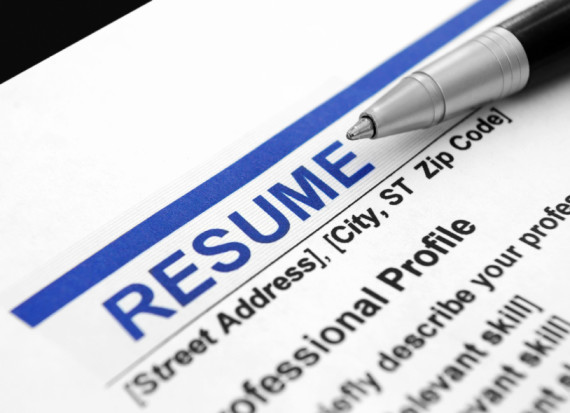My Un-Resume: I Didn’t Call HR
It was nuts! I had all the documentation and evidence I needed to fire her, but I was being investigated! She claimed I created an unfair work environment.
This woman skipped work and lied repeatedly. I got reports of her sleeping with some customers and unprofessional behavior with others.
Her actions created a schism within my team. I had multiple reasons to fire her, but I was being investigated!
Anyone in leadership in today’s litigious environment knows when a disgruntled employee makes claims against you, you had better have all your ducks in a row.
Fortunately, I had danced the documentation dance enough times that the investigation was almost as short as this troubled woman’s remaining job tenure.
When the dust settled, the investigation found I had done nothing wrong. I just needed to be quicker in calling in the resources available to me.
Doing My Job?
When I began to get multiple reports concerning this employee’s behavior, I decided to investigate. I went to employees and to customers to ask questions. I felt like I need to get the full story before reporting anything to HR.
I believed that because I was responsible for our company’s activities and reputation in my geography it was my job to investigate every accusation I had heard. I wish I had called my HR partner to get some advice from her first.
Doing HR’s Job
I never liked it when an HR person told me how to run my sales team. Very few had sales backgrounds nor had they ever led teams. That was my area of expertise!
Unfortunately, my independent nature and my tenure in my job, made me believe I knew how to handle this investigation. I was wrong. That was HR’s area of expertise!
The Human Resources professionals are a vital resource to all leaders. Both sides need to understand the other’s strengths and their limitations and rely on the expertise of the other person.
If I had just called my good friend in HR before I began asking questions of employees and customers, I would never have been put through the anxiety of an investigation.
The investigation spilled over into the rest of my team and disrupted our customers. It also added stress and strain at home. If I was found to be in the wrong, my job was in jeopardy.
As I said, it all turned out well, but I needed to learn to call in the cavalry much earlier in the process.
Necessary Endings
In his book Necessary Endings, Dr. Henry Cloud points out that the ability to know when to end a relationship is a critical skill. He does a great job laying out a process for all of us to use in both work and personal situations.
At work, he places people into three categories: The Wise, The Foolish and The Evil. Here is his advice when you are dealing with each of these people.
The Wise – Leaders Have Hope
These people appreciate feedback and own their performance. When they get coaching they go into problem solving mode and believe the coach is truly on their side.
The key with these people is to provide them with helpful feedback and encourage them. They will grow and prosper because they value growth.
The Foolish – Leaders Have Strength
These people do the opposite of the wise. They reject feedback or explain it away. The fool tries to adjust the truth so she does not have to adjust to it.
A leader must stop treating a foolish person like a wise person and establish consequences. The keys with these people are documentation and follow through.
The Evil – Leaders Get Help
These people are intentionally divisive and enjoy seeing others fail. Their world is all about them. Don’t expect them to change by giving in to them, reasoning with them or giving them another chance.
Dr. Cloud says this is when a leader must call in the reinforcements (HR, Legal etc.). A leader should never attempt to deal with these people alone.
Unfortunately, that is what I tried to do. I needed reinforcements, but I didn’t call for them. That was my big mistake.
The Bottom Line:
This woman caused me a lot of headaches during her short tenure on my team. But the biggest headache was my own doing. I should have called HR.
In hindsight, I was trying to do the job HR professionals were hired to do. I needed their expertise to handle a very complicated personnel situation, but I tried to go it alone.
Often as a leader, we feel like we are all alone. We are not. There are people in support roles like HR, Administrative and Legal who can help us. I learned to call for help the hard way.
What I should have done was realized the situation I was in needed specialized expertise. I should have asked for advice. My HR partner would have taken the investigation of this woman off my shoulders and saved us all a lot of heartache.
Question:
When have you seen a leader get in a fix because he believed he could do it alone?


Sales Management often does see HR as the enemy rather than a group with expertise to manage difficult situations. In my past as a sales manager I had several issues with representatives where HR brought measured judgment to the situation and provided a framework for me to build my case. Once I learned from their processes I was able to take appropriate action more quickly and with a better resolution.
Sales management is a tough job because so much of the interaction with team members is one-on-one without others present at a witness. Treat everyone with respect and document!
I’m pleased to be managing a territory-not a team!
Treat everyone with respect is key. Documenting is essential as soon as a pattern of behavior is evident.